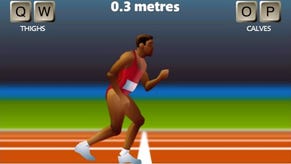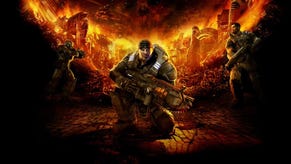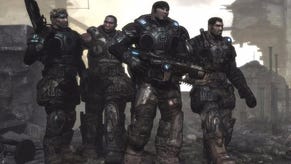Gears of War
Fenix the fight!
The transition to PC has been extremely kind, too. Although you can plug in a dual-stick controller and play it like a console game, the introduction of keyboard and mouse control improves the combat no end, adding a greater degree of precision to an already largely flawless game of trigger-tugging. Although you will have to succumb to Microsoft's Xbox Live for Windows model with its attendant gamertag and "Guide" concepts - whether you're on XP or Vista - you can do most of the things you want on a free account, and there is an undeniable satisfaction in accumulating those Achievements and gamerpoints we all pretend we don't care about. Upon which note, your targets are much the same, but there are now 33 hidden Cog Tags to uncover rather than 30.
You're also still allowed to play online co-op without paying for the subscription-based "Gold" account. This is something well worth undertaking, too, because the mounting absurdity of Marcus and Dom's situation becomes extremely comic, and it's a hard game to watch without wanting to poke fun (not for nothing, after all, is all the grunting and grimacing lampooned with affection by all those who play it). The PC version also adds an Editor, which has the potential to deliver even more free content to support the game's enjoyably different multiplayer modes. As an online shooter, Gears can't really rival Team Fortress 2 or Counter-Strike for depth, tactics and poise, but it's a natural extension of the offline game's hardest fire-and-move scenarios.
Not that it's ever lonely. Throughout the offline adventure, you're accompanied by at least one of your fellow "Gears", partly to support the excellent co-op mode - playable online, of course - but also to give the world a sense of balance. One of Gears' biggest strengths is that you never feel as though you're more than evenly matched. You can understand how the Locust overran the general populace - they spring from almost anywhere and they cut people to pieces with menace - but their strength is in numbers that their delivery mechanism's vulnerabilities place in jeopardy. As a small cluster of die-hard soldiers, you're equal to them in a skirmish, and that's how the game plays out.
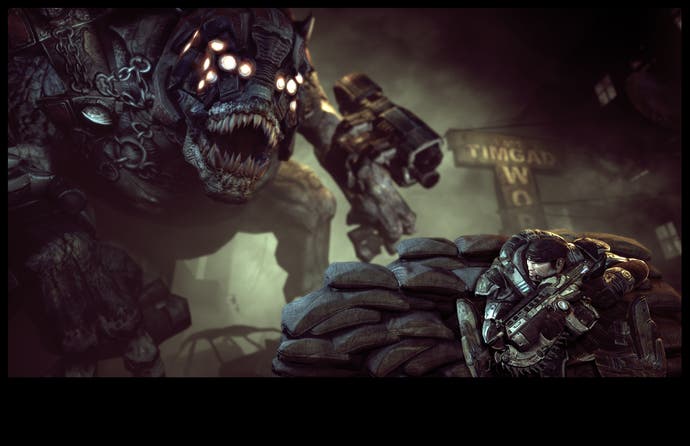
One downside to this approach is that you are sometimes pegged back by your comrades' failure. When Dom, Baird or Cole Train take too many bullets, they sag to their knees and need to be revived by running over to them and pressing the action button, but you can usually ignore this and soldier on without them. Except sometimes you can't - if they're slaughtered by Kryll, or blown to pieces, you have to restart from the last checkpoint, and this happens a bit too often for my liking.
Gears on PC overcomes one of the Xbox 360 version's issues by separating the roadie run control - a sprint move shot low-down by a handheld camera, which is excellent - from the button used to take cover, but there are still times you will run and snag on a piece of scenery, and the game's excellence in combat comes at the cost of manoeuvrability, the lack of which may come as something of a shock to fans of Quake and Half-Life. There are also sections designed to fracture the relentlessness that serve better to frustrate - a laboured journey in an armoured car that sounds good on paper but bores in practise, and a mine cart ride (yes, it is 2007) that could have been removed without hurting anybody, spring to mind most readily. And while mostly your adversaries scale up interestingly, the laziness of the exploding, monkey-like lambent wretches or the flying eyeball Nemecyst isn't easily overlooked.
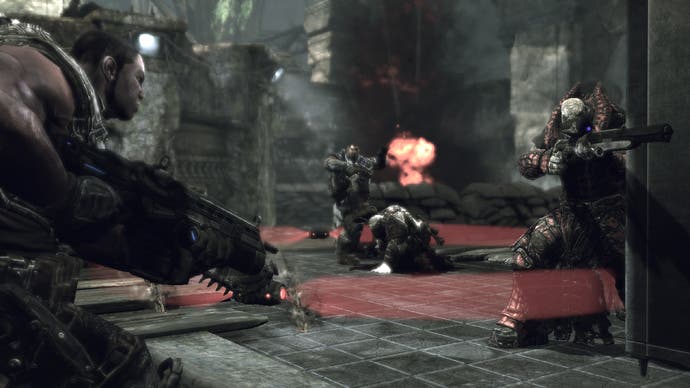
On Xbox 360, Gears was also accused (albeit only subsequently) of feeling unfinished. Ironically, the absence of narrative coherency in the latter stages and the stunted conclusion worked in its favour, dramatically, and the added PC stages walk the tightrope of existing exposition quite impressively without blunting the enjoyably inconclusive finale. Which is to say that they literally bridge the gap between one place and the next (amazingly, you turned some pressure valves - "I am your father" it is not), but they don't plug any of the holes. You still end the game with plenty of questions.
With all that said, Gears of War remains a triumph. It is an almost relentless march of unpretentious, cartoon violence that serves as a satisfyingly brainless alternative to the complexity of its contemporaries. Whether played alone or with a friend, it's essential gaming - different enough to defy direct comparison, and versatile enough in what it attempts to sustain an otherwise predictable campaign. While other games lurk unconvincingly in the shadows of action cinema, desperate to be counted alongside the films they pillage, Gears achieves all their strengths - gratifying spectacle, comic violence and rugged activity - by concentrating on what makes the best games work: simplicity, skill, and more than a little bit of absurdity.

